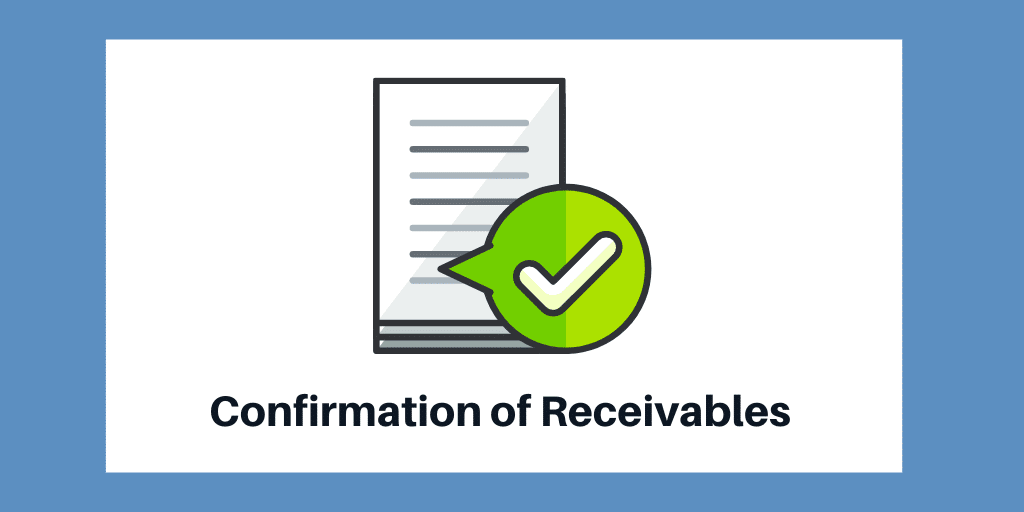Confirmation of Receivables: Is It Required?
By Charles Hall | Auditing
When is the confirmation of receivables required?
 Confirmation of Receivables is Usually Required
Confirmation of Receivables is Usually RequiredAU-C 330 paragraph 20 states the following:
The auditor should use external confirmation procedures for accounts receivable, except when one or more of the following is applicable:
If receivables are material and confirmation procedures will be effective, then confirmations must be sent. (Normally, the existence assertion related to receivables is moderate to high. So, 3. above is not in play.)
AU-C 330.A56 states:
External confirmation procedures may be ineffective when based on prior years’ audit experience or experience with similar entities:
If the auditor has experienced poor response rates to properly designed confirmation requests in prior audits, the auditor may instead consider changing the manner in which the confirmation process is performed, with the objective of increasing the response rates or may consider obtaining audit evidence from other sources.
What audit procedure should be performed if confirmations are not sent? Usually, the auditor will examine cash collections after the period-end. Care must be taken to ensure that the subsequent collections examined relate to receivables that existed at period-end and not to sales occurring after period-end.
AU-C 330.31 states that “the auditor should include in the audit documentation the basis for any determination not to use external confirmation procedures for accounts receivable when the account balance is material.” So, it is not sufficient to simply state that the use of confirmations is ineffective. We should state that we tried to confirm receivables in a prior year without effective results or that we tried to confirm receivables for clients in a similar industry, but without effective results.
The auditor should include a memo to the file or add comments on the receivables work paper explaining why confirmations were not sent.
See my post: Auditing Receivables and Revenues.
Charles Hall is a practicing CPA and Certified Fraud Examiner. For the last thirty-five years, he has primarily audited governments, nonprofits, and small businesses. He is the author of The Little Book of Local Government Fraud Prevention, The Why and How of Auditing, Audit Risk Assessment Made Easy, and Preparation of Financial Statements & Compilation Engagements. He frequently speaks at continuing education events. Charles consults with other CPA firms, assisting them with auditing and accounting issues.
Session expired
Please log in again. The login page will open in a new tab. After logging in you can close it and return to this page.